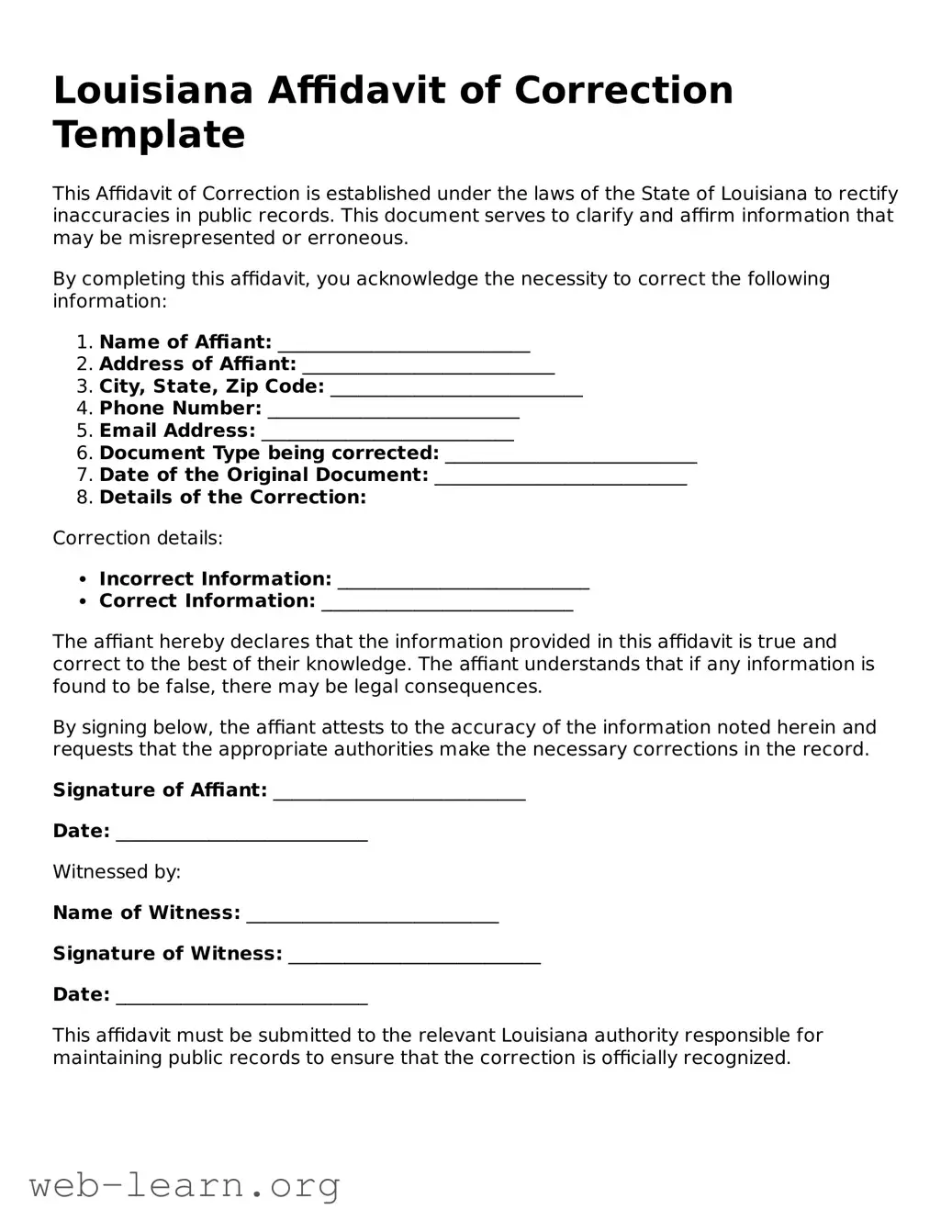Louisiana Affidavit of Correction Template
This Affidavit of Correction is established under the laws of the State of Louisiana to rectify inaccuracies in public records. This document serves to clarify and affirm information that may be misrepresented or erroneous.
By completing this affidavit, you acknowledge the necessity to correct the following information:
- Name of Affiant: ___________________________
- Address of Affiant: ___________________________
- City, State, Zip Code: ___________________________
- Phone Number: ___________________________
- Email Address: ___________________________
- Document Type being corrected: ___________________________
- Date of the Original Document: ___________________________
- Details of the Correction:
Correction details:
- Incorrect Information: ___________________________
- Correct Information: ___________________________
The affiant hereby declares that the information provided in this affidavit is true and correct to the best of their knowledge. The affiant understands that if any information is found to be false, there may be legal consequences.
By signing below, the affiant attests to the accuracy of the information noted herein and requests that the appropriate authorities make the necessary corrections in the record.
Signature of Affiant: ___________________________
Date: ___________________________
Witnessed by:
Name of Witness: ___________________________
Signature of Witness: ___________________________
Date: ___________________________
This affidavit must be submitted to the relevant Louisiana authority responsible for maintaining public records to ensure that the correction is officially recognized.
